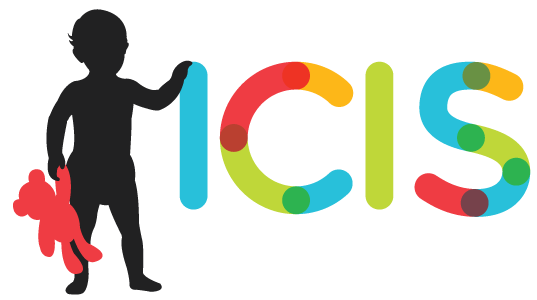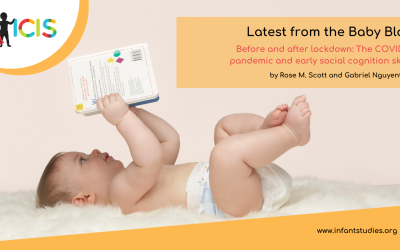by Nina Fefferman & Vanessa LoBue
Now that the COVID-19 global pandemic is into its second year, we are finally seeing some relief in parts of the world with the approval of various vaccinations that prevent symptoms of the virus. In the United States, the three vaccines approved for current use have been shown to greatly reduce the probability of catching COVID-19 (with efficacy for preventing lab-confirmed illness ranging from 94%-95% for the two-dose Pfizer or Moderna shots to about 70% of moderate to severe illness for the single-dose Johnson and Johnson shot) (Katella, 2021). Much more importantly, all three vaccinations have been shown to almost completely prevent severe illness, hospitalization, and death.
However, these vaccinations are not yet approved for infants and small children. In fact, until this week, Pfizer’s vaccine had only approved for individuals aged 16 and up, and has just been approved by the FDA for ages 12 and up. The Moderna and Johnson & Johnson’s vaccines start at the ripe old age of 18. Although all three of these companies have already begun clinical trials in children, it’s too early to know when they will be approved and available for our younger populations. This has led several researchers, pediatricians, and parents alike to wonder when they can truly relax and feel that families with younger children are safe.
Why do we need clinical trials for children?
One question a lot of people are asking is why do we need clinical trials for children if we already have them for adults? The short answer is that children’s immune systems are immature and continue to develop throughout childhood and into the teenage years. As children’s immune systems change, they can react to vaccinations differently than adults’ immune systems. This means that not only can adult vaccinations leave children vulnerable to a specific illness, but children can also experience different side effects than adults do, which might be dangerous in some cases (Fatima, & Syed, 2018). For some diseases, we can safely provide effective vaccines to infants who are only a few months old (such as Hepatitis B, Rotavirus, or Pertussis), but vaccines given so early in life often require subsequent doses to ensure ongoing protection. Thus, it is incredibly important for vaccine trials to specifically target different age groups before they are approved for infants and young children.
Vaccines for school-aged children
It isn’t news to anyone that to prevent the spread of COVID-19, schools were closed and went to remote instruction last March. Some have returned to in-person instruction, others have adopted hybrid models with the option of both some in-person and some remote instruction, while other schools have been enduring 100% remote instruction for over a year now. Closing schools has been a costly burden on parents, students, and their surrounding communities.
Fortunately, the Phase 3 clinical trial for Pfizer studying vaccines in children aged 12-15 has just yielded excellent early results and is expected to be expanded by mid-summer. Moderna is also running advanced trials for children aged 12-17. Pfizer and Moderna have also begun trials for children as young as 6 months, but those trials are much earlier along and do not yet have any sort of timeline for FDA approval. Such a timeline depends not only on continuing to see no health problems in children receiving the vaccines, but also on the rate at which diagnosed infection in both vaccinated and unvaccinated children is identified. Indeed, early childhood vaccine schedules have to balance when children can be effectively protected, how often they need additional doses to retain that protection, the probability of exposure to the disease, and the likely severity of the health outcome if they were to be exposed. This means that paradoxically, better controlling community transmission of COVID-19 in children actually slows down the testing and approval process for emergency vaccine authorization from the FDA. But while children are less likely to experience severe disease than adults for the original strain of COVID-19, there can still be serious outcomes from illness that vaccines could ideally prevent (American Academy of Pediatrics, 2020).
With this week’s approval of Pfizer vaccines for 12- to 15-year-olds, many older children may be able to be fully immunized by this summer. For younger children, it’s reasonable to hope that tests might be concluded and analyzed by this fall or by the end of this year, and for infants perhaps by the spring of 2022. But the younger the child, the more speculative the timeline.
Vaccines for toddlers
Although it is important to vaccinate children who can pass the virus on to other children and adults in schools, as soon as children begin crawling and walking on their own, they become risky carriers of the virus. Toddlers are already being included in some trials that just began in March of 2021 (Moderna and Pfizer), but it is likely to be awhile before any vaccines are approved for this young age group. As with any group, it will be important to make sure that there are no unforeseen side effects (there have been none reported so far), and that children’s immune systems respond to the vaccine in a way that leads to meaningful protection against illness.
Vaccines for infants
For infants, most of the potential risks of exposure come from family members, peers, and caretakers at early childhood daycares. These risks can be minimized by ensuring that all eligible family members and caregivers are fully vaccinated. The original strain of COVID-19 is unlikely to cause serious illness in toddlers or infants (Ng, Bandi, & Tang, 2020), but more recent strains are infecting younger age groups, so taking precautions against exposure is still a good idea, even with infants, until a vaccine is approved for our youngest age groups. While results from clinical trials are the best way to ensure that the vaccines will not cause unanticipated side effects in infants, the main risks would come from failure to achieve full immune protection.
For both toddlers and infants, if vaccines are simply not effective in individuals with immature immune systems, they will not be approved. If, however, they are effective, but the protection wanes over time, we can expect a recommended vaccination schedule of boosters throughout childhood, which is already standard practice for many other vaccines. Parents should try to adhere as closely as possible to the recommended schedule, both to ensure consistent protection for their own children and to prevent their children from becoming sources of exposure to others.
For more information on Moderna’s clinical trials with children: https://clinicaltrials.gov/ct2/show/study/NCT04796896
For more information on Pfizer’s clinical trials with children: https://clinicaltrials.gov/ct2/show/study/NCT04816643
References
American Academy of Pediatrics (April 8, 2021). Children and COVID-19: State-Level Data Report, https://services.aap.org/en/pages/2019-novel-coronavirus-covid-19-infections/children-and-covid-19-state-level-data-report/
Fatima, K., & Syed, N. I. (2018). Dengvaxia controversy: impact on vaccine hesitancy. Journal of global health, 8(2).
Katella, K. (April 13, 2021). Comparing the COVID-19 Vaccines: How are they different? Yale Medicine, https://www.yalemedicine.org/news/covid-19-vaccine-comparison
Ng, K. F., Bandi, S., Bird, P. W., & Tang, J. W. T. (2020). COVID-19 in neonates and infants: progression and recovery. The Pediatric infectious disease journal, 39(7), e140-e142.
If you have expertise in covid-related issues in countries outside the United States and would like to write a post for the ICIS Baby Blog, please let us know!
About the Author

Nina Fefferman
UT Knoxville
Nina Fefferman is a professor in both the Ecology and Evolutionary Biology and Mathematics departments at UT Knoxville, where she is an Associate Director of the One Health Initiative and the Director of the National Institute for Mathematical and Biological Synthesis (NIMBioS). Her research uses mathematical modeling to explore the behavior, evolution, and control of complex systems with application in areas from basic science (evolutionary sociobiology and epidemiology) to informing real-world policies and deployable technology (bio-security, pandemic preparedness, wildlife conservation, and cyber-security).

Vanessa LoBue
Rutgers University
Vanessa LoBue, Ph.D., is an Associate Professor of Psychology at Rutgers University. She received her B.S. from Carnegie Mellon University and her M.A. and Ph.D. from the University of Virginia. Dr. LoBue’s research focuses on human behavioral responses to emotionally valenced stimuli—specifically to negative or threatening stimuli—and the mechanisms guiding the development of these responses. More specifically, she examines how early perceptual biases for threat contribute to maladaptive avoidance behaviors, such as those associated with the development of fear and anxiety, and how cognition contributes to children’s learning of adaptive avoidance responses, such as avoidance of contagious people or contaminated objects.




